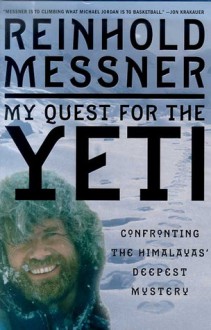

Angehenden Schriftsteller_innen wird oft geraten, das Buch zu schreiben, das sie selbst lesen möchten. Kevin Hearne, Autor der „Iron Druid Chronicles“, nahm sich diesen Ratschlag zu Herzen. Er begann die Reihe um den Eisernen Druiden Atticus, weil er Urban Fantasy – Romane lesen wollte, die sich mit dem irischen Göttergeschlecht der Túatha Dé Danann beschäftigen und keine fand. In dieser Marktlücke sah er seine Chance, denn das Pantheon ist bezüglich seiner Rollenverteilung im europäischen Raum einzigartig: es verzichtet auf patriarchalische Strukturen. Hinsichtlich Einigkeit und Harmonie unterscheiden sich die irischen Götter und Göttinnen hingegen nicht von anderen Pantheons: sie zanken sich mit Inbrunst, was Atticus im siebten Band „Shattered“ schmerzhaft am eigenen Leib erfährt.
Er hätte es wissen müssen. Ein Geschenk der Morrigan, ha! Als Atticus O’Sullivan erkennt, wen die Göttin auf einer Zeitinsel konservierte, entgleisen ihm alle Gesichtszüge. Es handelt sich um seinen alten Lehrmeister. Owen Kennedy war bereits vor 2.000 Jahren ein griesgrämiger Stinkstiefel – Atticus hat so eine Ahnung, dass ihm die Anpassung an die Moderne gar nicht schmecken wird. Während er Owen die Vorzüge von Toiletten, Handys und der englischen Sprache beizubringen und gleichzeitig die Verschwörung in Tír na nÓg aufzudecken versucht, stellt sich Granuaile in Indien einem sensiblen Kapitel ihrer Vergangenheit. Ihr Vater ist vom Geist eines bösen Hexers besessen und läuft Amok. Mithilfe von Laksha muss sie einen Exorzismus an einem Mann durchführen, den sie eigentlich nur aus Briefen und Postkarten kennt. Zu spät begreift sie, dass sie in eine Falle tappt. Ragnarök rückt unaufhaltsam näher und Loki ist nicht dafür bekannt, fair zu kämpfen…
Uiuiui, was ist denn in Kevin Hearne gefahren? Da mausert sich jemand langsam, aber sicher zu einem richtig guten Schriftsteller! Ich bin entzückt! Es freut mich sehr, sein Wachstum als Autor zu beobachten. Urban Fantasy eignet sich nicht unbedingt dazu, mit schriftstellerischer Finesse zu glänzen, weil sie als reine Unterhaltungsliteratur oft einfach nicht den Rahmen für tiefgründige Betrachtungen liefert, doch mit „Shattered“ gelang es Hearne, ein neues Niveau zu erreichen. Der siebte Band der „Iron Druid Chronicles“ fühlte sich für mich geerdet und ausgeglichen an, obwohl die Handlung erneut actionreich ist und Hearne nun sogar mit drei Perspektiven jongliert, die in parallel verlaufende Erzählstränge münden. Neben Atticus und Granuaile erhält Owen, Atticus‘ alter Mentor, die Gelegenheit, seine Sichtweise zu ergänzen, was ich sagenhaft spannend fand. Nicht nur bietet er Einblicke in Atticus‘ Vergangenheit sowie seine Ausbildung, er vermittelt darüber hinaus eine einzigartige, faszinierende Einschätzung der modernen Gesellschaft. Ich dachte viel darüber nach, ob er die Jahrtausende jemals überbrücken und sich anpassen kann. Sollte er diese Herausforderung meistern, dann nur dank seines gradlinigen Dickkopfs und seiner Bereitschaft zur Selbstkritik. Die Dreiteilung gefiel mir somit sehr gut, weil sie die Geschichte um eine Facette erweitert, die ich nicht erwartet habe. Die Drei ist im druidischen Glauben eine magische Zahl, deren Macht sich ebenfalls aus der Einheit der Figuren ablesen lässt. Sie bieten sehr unterschiedliche Blickwinkel, die die verschiedenen Phasen im druidischen Leben symbolisieren. Während Owen Erfahrung und Weisheit des fortgeschrittenen Alters personifiziert, erleben wir Atticus in der Blüte seiner Jahre und Granuaile als junge Druidin, die einsieht, dass ihr Dienst für Gaia trotz allen Vorteilen immense Opfer fordert. Sie bilden eine Dreieinigkeit. Meinem Empfinden nach lassen erst Owen und Granuaile die Geschichte harmonisch schwingen. Atticus brauchte Gegengewichte. Ihre distinktiven, individuellen Stimmen bereichern „Shattered“ und ermöglichen es Kevin Hearne, sich auf der weiten Spielwiese seiner alternativen Realität voll auszutoben. Ich liebe es, dass er die gesamte magisch verbundene Welt als Bühne nutzt, in jedem Band mehr oder weniger exotische Länder und Kulturen besucht und ich dadurch immer etwas Neues über Religionen lerne. Dieses Mal traf ich indische und japanische Göttinnen, trank mit Jesus in Montana Tequila und lernte Yetis im Himalaya kennen. Cool, oder was? Hearne betont außerdem noch einmal den menschlichen Glauben als zentrale Kraft seines mythologischen Systems, wodurch sich einige vergangene Ereignisse relativieren. Göttliche können physisch sterben, solange auf Erden jemand an sie glaubt, bleiben sie metaphysisch jedoch quicklebendig und können sich nach Belieben manifestieren. In Zusammenhang mit Ragnarök verspricht das interessant zu werden, denn die Menschen wissen nichts von der drohenden Apokalypse und werden nicht plötzlich aufhören, an göttliche Entitäten zu glauben. Da fragt man sich doch, wie viel Erfolg Loki überhaupt haben kann.
Für mich war „Shattered“ emotional wieder ebenso einnehmend wie die ersten Bände der „Iron Druid Chronicles“. Die Handlung ist aufregend, erschien mir allerdings deutlich kontrollierter und weniger chaotisch. Ich glaube, dass Kevin Hearne sich langsam auf das Finale der Reihe vorbereitet und deswegen einige offene Baustellen abarbeitet, zum Beispiel die Verschwörung in Tír na nÓg, die sich im siebten Band endlich aufklärt. Vielleicht wurde ihm klar, dass er die Konflikte der Geschichte eingrenzen muss, um sie befriedigend abschließen zu können und entschied aus demselben Grund, Atticus außer Granuaile auch Owen zur Seite zu stellen. Die beiden stützen und festigen ihn. Ich hatte den Eindruck, dass sie ihn nach zahllosen schlechten Entscheidungen wieder auf den rechten Weg führen. Zu dritt haben sie meiner Meinung nach eine echte Chance, Loki die Stirn zu bieten und Ragnarök aufzuhalten. Offenbar ist die Rettung der Welt eine Aufgabe, für die es mehr als einen Helden braucht. Es braucht ein Trio.

 Log in with Facebook
Log in with Facebook 










